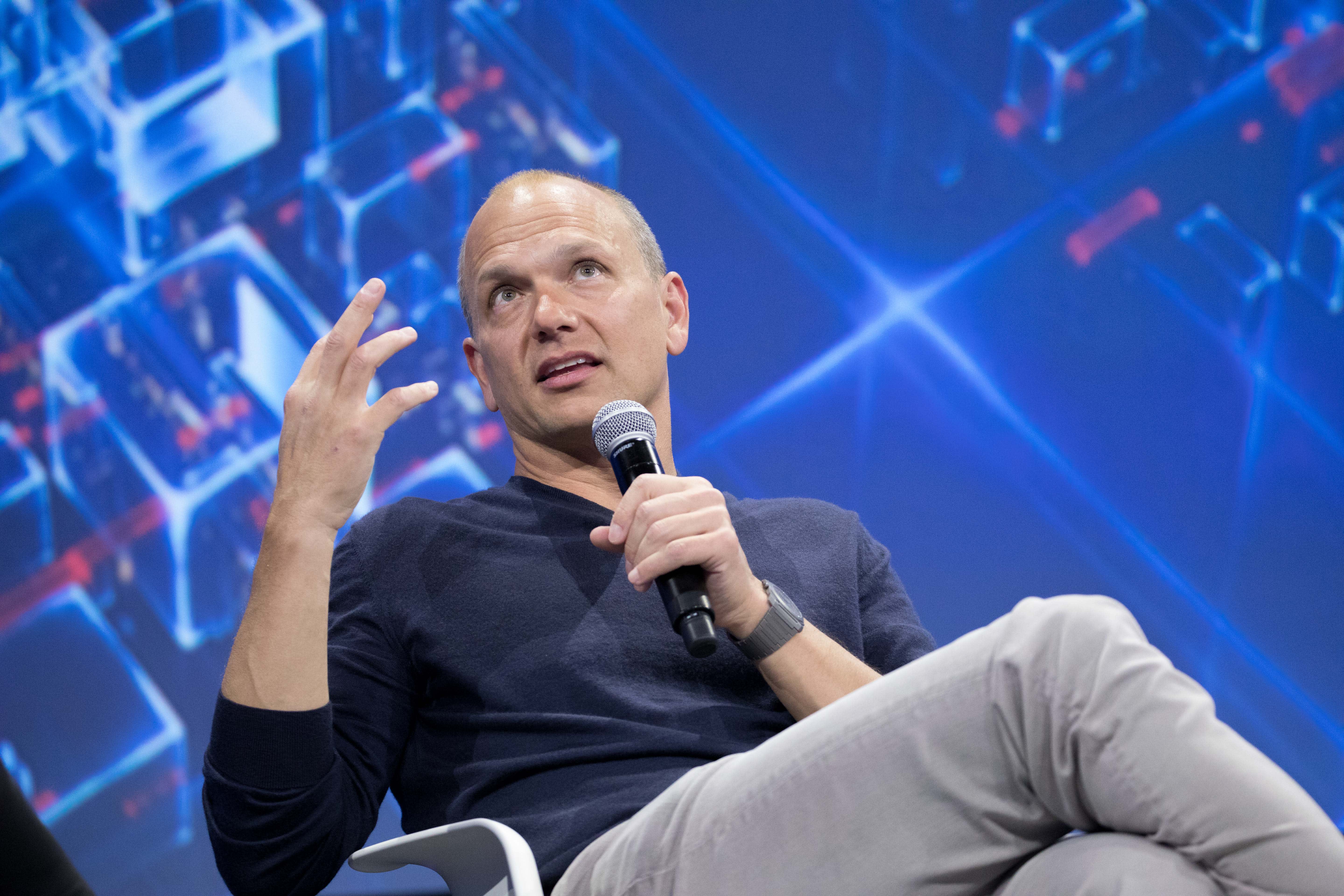Tony Fadell, Inventor of the iPod and former CEO of Nest attends a conference during Viva Technology at Parc des Expositions Porte de Versailles on June 16, 2017 in Paris, France.
(Getty | Christophe Morin)
Before becoming known as the “father of the iPod,” Tony Fadell said he was rejected by 80 venture capital investors when trying to raise funding for his own technology business.
“So I literally had a decade of failure,” Fadell said, reflecting on his early years in the technology industry in the 1990s.
Fadell was speaking on a panel at the 2020 CogX conference with former colleagues of General Magic, the spin-off company of technology giant Apple, which operated in Silicon Valley in the 1990s but went out of business in the early 2000s.
General Magic was described as “the most important company that came out of Silicon Valley that nobody ever heard of” in an 2018 documentary about the business. It was the company that designed the blueprint of the first smartphone and pioneered other modern technology, like touchscreens and emojis.
Fadell worked at General Magic for four years developing personal hand-held communications technology before moving to Dutch electronics brand Phillips, where he built its mobile computing group. He then struck out on his own, founding consumer electronics company Fuse Systems in 1999, but the dotcom crisis hit a year later.
Fadell said it was tough to have gone through those 10 years “always trying to push the boundaries, picking yourself up, trying again,” only to be then faced with the stock market crash of 2000.
“We had a small company and I had to give 80 pitches to (venture capital investors) … and all 80 said no,” he recalled.
“To go through a decade of this gut wrenching failure and people say ‘no you’re wrong, no you’re wrong,” it hurt. But that set the stage for the next 10 years and beyond, which you know was the iPod and then the iPhone, which was General Magic all over again,” Fadell added.
Coronavirus
After Fuse failed to get funding, Fadell joined Apple in 2001 as a consultant, coming up with the initial concept for the iPod and was then hired to head up its development. He also co-created the iPhone and was advisor to the late Apple CEO Steve Jobs from 2008 to 2010.
Fadell’s next invention was the Nest Thermostat, a smart energy device for the home. Google bought his company Nest Labs, which was behind the smart thermostat, in 2014. fut
He is now principal at global technology advisory and investment firm Future Shape.
Helping the companies in Future Shape’s portfolio navigate the financial challenges brought on by the coronavirus reminded him of his own early career setbacks, he said.
“It felt like I was back in those failure days but (thinking about) what could we do to not repeat those mistakes?” Fadell said.
“What could we do to make those companies that are struggling … stronger? And go through this and have a better plan and hopefully change the world as they intend?”
